How to Choose Reliable Diesel Exhaust Fluid Manufacturers

Understanding the Importance of Diesel Exhaust Fluid Manufacturers Diesel exhaust fluid manufacturers play a crucial role in helping businesses comply with stringent emissions regulations. Diesel Exhaust Fluid (DEF) is used in Selective Catalytic Reduction (SCR) systems to reduce nitrogen oxide emissions from diesel engines. Choosing the right manufacturer ensures that businesses receive high-quality DEF that meets ISO 22241 standards. A reliable diesel exhaust fluid manufacturer utilizes advanced production technology, such as a high-precision diesel exhaust fluid making machine, to ensure product purity and consistency. Partnering with a trusted manufacturer guarantees compliance, reduces operational risks, and helps businesses maintain an uninterrupted DEF supply. Key Characteristics of a Reliable Diesel Exhaust Fluid Manufacturer When evaluating diesel exhaust fluid manufacturers, certain characteristics set the best suppliers apart. The first factor to consider is their commitment to quality assurance. A top-tier manufacturer follows strict production standards and conducts frequent quality checks to maintain product integrity. Additionally, a reliable manufacturer invests in state-of-the-art equipment, such as an automated diesel exhaust fluid making machine, to produce DEF with the correct urea-to-water ratio. Manufacturers with industry certifications, transparent production processes, and strong distribution networks are more likely to provide dependable service. How Diesel Exhaust Fluid Manufacturers Maintain Product Quality Quality control is a top priority for reputable diesel exhaust fluid manufacturers. DEF must be free from impurities and produced with precise mixing techniques to ensure optimal performance in diesel engines. Using an advanced diesel exhaust fluid making machine, manufacturers can achieve consistent DEF purity. Regular laboratory testing, proper storage conditions, and compliance with ISO standards further enhance product quality. Businesses should verify whether a manufacturer adheres to these best practices before establishing a partnership. Factors to Consider When Choosing a Diesel Exhaust Fluid Manufacturer Several factors influence the selection of a reliable diesel exhaust fluid manufacturer. The most important aspects to evaluate include production capacity, supply chain reliability, regulatory compliance, and customer support. Manufacturers that use a high-quality diesel exhaust fluid making machine can produce DEF at scale without compromising quality. Additionally, businesses should assess the manufacturer’s reputation, delivery timelines, and ability to handle bulk orders efficiently. The Role of Diesel Exhaust Fluid Making Machines in Manufacturing A diesel exhaust fluid making machine is an essential component of any DEF manufacturing facility. This machine ensures that the correct proportion of deionized water and urea is mixed to meet industry standards. Reliable diesel exhaust fluid manufacturers use automated production equipment to eliminate human error, improve efficiency, and reduce contamination risks. Investing in a supplier that utilizes advanced machinery guarantees a higher-quality product and a more reliable supply chain. Verifying Compliance and Certifications of Diesel Exhaust Fluid Manufacturers Ensuring that diesel exhaust fluid manufacturers comply with industry regulations is critical for businesses. DEF must meet ISO 22241 standards to prevent engine damage and ensure environmental compliance. Manufacturers that invest in a high-performance diesel exhaust fluid making machine are more likely to meet these strict quality and purity standards. Businesses should request compliance certificates, quality assurance reports, and product test results before selecting a supplier. Benefits of Partnering with a Trusted Diesel Exhaust Fluid Manufacturer Working with a reliable diesel exhaust fluid manufacturer offers numerous advantages. High-quality DEF improves fuel efficiency, extends engine life, and ensures compliance with emission regulations. Additionally, manufacturers that use a cutting-edge diesel exhaust fluid making machine can provide consistent DEF supply, reducing risks associated with supply chain disruptions. Long-term partnerships with trusted manufacturers also lead to cost savings and better customer service. Conclusion Selecting the right diesel exhaust fluid manufacturer is essential for businesses that rely on DEF for regulatory compliance and engine efficiency. By evaluating quality control processes, production capabilities, and industry certifications, businesses can find a manufacturer that meets their needs. Manufacturers that use advanced diesel exhaust fluid making machine technology provide superior product quality, ensuring a stable and high-purity DEF supply. Frequently Asked Questions What do diesel exhaust fluid manufacturers do? Diesel exhaust fluid manufacturers produce DEF, a solution that reduces nitrogen oxide emissions in diesel engines. Why is choosing the right diesel exhaust fluid manufacturer important? A reliable diesel exhaust fluid manufacturer ensures high-quality DEF, regulatory compliance, and consistent product supply. What role does a diesel exhaust fluid making machine play in production? A diesel exhaust fluid making machine automates the blending of urea and deionized water, ensuring accurate DEF composition. How can I verify if a diesel exhaust fluid manufacturer meets industry standards? Check for ISO 22241 certifications, quality control processes, and compliance with industry regulations. What factors should I consider when selecting a diesel exhaust fluid manufacturer? Production capacity, compliance certifications, supply chain reliability, and use of a high-quality diesel exhaust fluid making machine are key factors. How does a high-quality diesel exhaust fluid making machine improve DEF production? It ensures precise mixing, reduces contamination risks, and improves overall production efficiency. Can poor-quality DEF damage diesel engines? Yes, low-quality DEF can lead to SCR system failures, increased emissions, and reduced engine performance. How often should DEF quality be tested? DEF should be tested regularly to ensure it meets ISO purity standards and remains free from contamination. What are the benefits of working with a large-scale diesel exhaust fluid manufacturer? Larger manufacturers offer better production capacity, stable supply chains, and more competitive pricing. Is buying DEF directly from manufacturers cost-effective? Yes, purchasing DEF directly from diesel exhaust fluid manufacturers reduces costs and ensures product quality.
Top Diesel Exhaust Fluid Manufacturers and Their Benefits
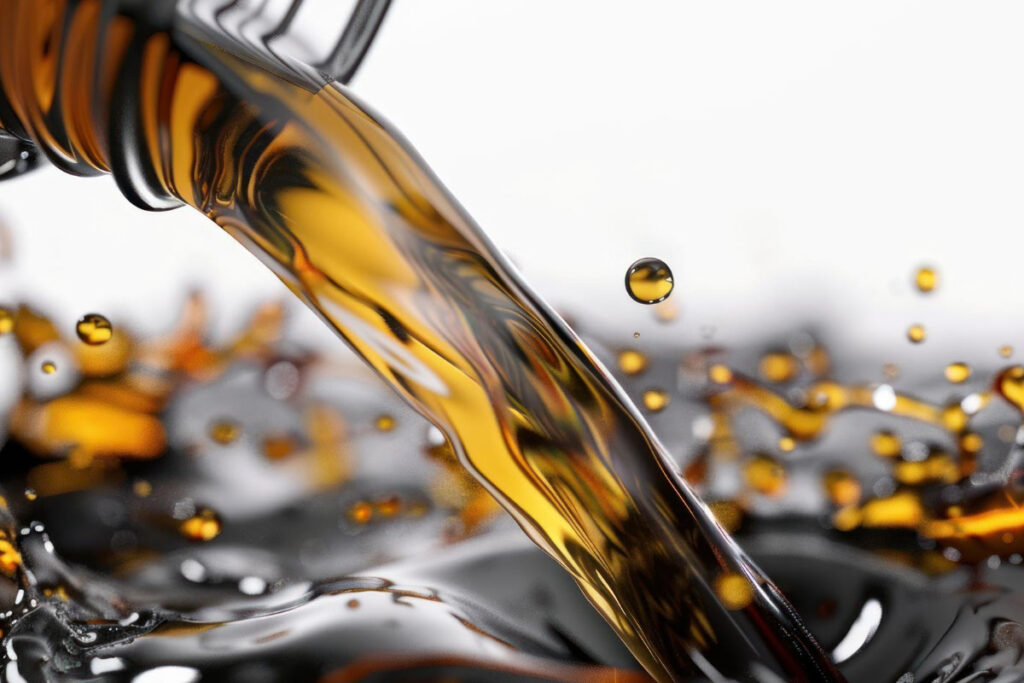
The Role of Diesel Exhaust Fluid Manufacturers in Emission Control Diesel exhaust fluid manufacturers play a crucial role in reducing harmful emissions from diesel engines. DEF is an essential component in Selective Catalytic Reduction (SCR) technology, which helps lower nitrogen oxide emissions. As global regulations on diesel emissions tighten, the demand for high-quality DEF continues to rise. To meet these demands, diesel exhaust fluid manufacturers must ensure that their products comply with ISO 22241 standards. This ensures that DEF remains free of contaminants, maintains proper urea concentration, and does not damage SCR systems. Utilizing an advanced diesel exhaust fluid making machine is essential for manufacturers to maintain consistent quality and meet regulatory requirements. Key Factors That Define a Reliable Diesel Exhaust Fluid Manufacturer Not all diesel exhaust fluid manufacturers provide the same level of quality and reliability. When selecting a manufacturer, businesses must consider several factors to ensure that they receive high-purity DEF that meets industry standards. A reputable manufacturer should use a state-of-the-art diesel exhaust fluid making machine to maintain consistent production quality. Additionally, the manufacturer should follow strict quality control measures, offer transparent compliance documentation, and provide efficient logistics and distribution services to ensure timely delivery of DEF. How Diesel Exhaust Fluid Manufacturers Maintain Product Quality Maintaining DEF quality is a priority for diesel exhaust fluid manufacturers. High-purity urea and deionized water must be used to produce a solution that meets regulatory requirements. Any contamination can compromise DEF performance and cause damage to diesel engines. By using a high-precision diesel exhaust fluid making machine, manufacturers can ensure accurate mixing ratios and prevent impurities. Regular laboratory testing, proper storage conditions, and advanced filtration systems further contribute to maintaining product integrity. Benefits of Choosing the Right Diesel Exhaust Fluid Manufacturer Selecting a reliable diesel exhaust fluid manufacturer offers several advantages. The most significant benefit is consistent product quality, which ensures optimal performance in diesel engines. High-quality DEF helps improve fuel efficiency and extends the lifespan of SCR systems. Additionally, working with a reputable manufacturer guarantees compliance with environmental regulations. A manufacturer that invests in advanced diesel exhaust fluid making machine technology can provide bulk production while maintaining high purity levels. Businesses that rely on a trusted supplier can also secure better pricing and more reliable supply chain operations. Technological Advancements in Diesel Exhaust Fluid Manufacturing Recent technological advancements have transformed the way diesel exhaust fluid manufacturers produce DEF. Modern production plants utilize fully automated diesel exhaust fluid making machine systems that enhance efficiency and reduce human error. Automated quality control systems, real-time production monitoring, and advanced filtration processes ensure that the final product meets strict purity requirements. These innovations allow manufacturers to increase production capacity while maintaining the highest quality standards, benefiting businesses that rely on DEF. Environmental and Economic Benefits of Diesel Exhaust Fluid Manufacturers Diesel exhaust fluid manufacturers play a vital role in reducing the environmental impact of diesel engines. By producing high-quality DEF, these manufacturers help lower nitrogen oxide emissions, improving air quality and contributing to sustainability initiatives. From an economic perspective, businesses that partner with a reliable diesel exhaust fluid manufacturer can lower operational costs by improving fuel efficiency and reducing maintenance expenses. Manufacturers that invest in energy-efficient diesel exhaust fluid making machine technology can also lower production costs, benefiting consumers through competitive pricing. How to Choose the Best Diesel Exhaust Fluid Manufacturer for Your Business Choosing the right diesel exhaust fluid manufacturer requires careful evaluation of several factors. Businesses should assess the manufacturer’s reputation, production capacity, compliance certifications, and commitment to quality assurance. Manufacturers that use an advanced diesel exhaust fluid making machine and adhere to strict regulatory guidelines are more likely to provide high-quality DEF. Additionally, businesses should consider supply chain reliability, delivery capabilities, and customer support services when selecting a DEF supplier. Conclusion Diesel exhaust fluid manufacturers play a crucial role in helping businesses comply with emission regulations while improving diesel engine efficiency. A reputable manufacturer invests in advanced diesel exhaust fluid making machine technology to ensure consistent product quality. By choosing the right manufacturer, businesses can secure a reliable DEF supply, optimize operational costs, and contribute to environmental sustainability. Frequently Asked Questions What do diesel exhaust fluid manufacturers do? Diesel exhaust fluid manufacturers produce DEF, a solution that reduces nitrogen oxide emissions in diesel engines. Why is it important to choose a reliable diesel exhaust fluid manufacturer? A reputable diesel exhaust fluid manufacturer ensures high-quality DEF, compliance with regulations, and a reliable supply chain. How is diesel exhaust fluid made? DEF is produced using a diesel exhaust fluid making machine that accurately blends high-purity urea with deionized water. What certifications should a diesel exhaust fluid manufacturer have? A reliable diesel exhaust fluid manufacturer should comply with ISO 22241 standards and other industry regulations. How do diesel exhaust fluid manufacturers ensure product quality? Manufacturers use a high-precision diesel exhaust fluid making machine, conduct laboratory tests, and implement strict quality control measures. Can diesel exhaust fluid be contaminated? Yes, contamination can occur if DEF is not properly stored or if low-quality production methods are used. What are the benefits of using high-quality DEF? High-quality DEF improves fuel efficiency, extends the life of SCR systems, and ensures compliance with emissions regulations. What is the role of a diesel exhaust fluid making machine in DEF production? A diesel exhaust fluid making machine automates the mixing process, ensuring accurate blending and consistent DEF quality. How can I verify the reliability of a diesel exhaust fluid manufacturer? Check for industry certifications, production capacity, and customer reviews to evaluate a diesel exhaust fluid manufacturer. Is it cost-effective to buy DEF directly from manufacturers? Yes, purchasing DEF directly from diesel exhaust fluid manufacturers can reduce costs and ensure consistent supply.
How to Make Your Own DEF Safely and Efficiently
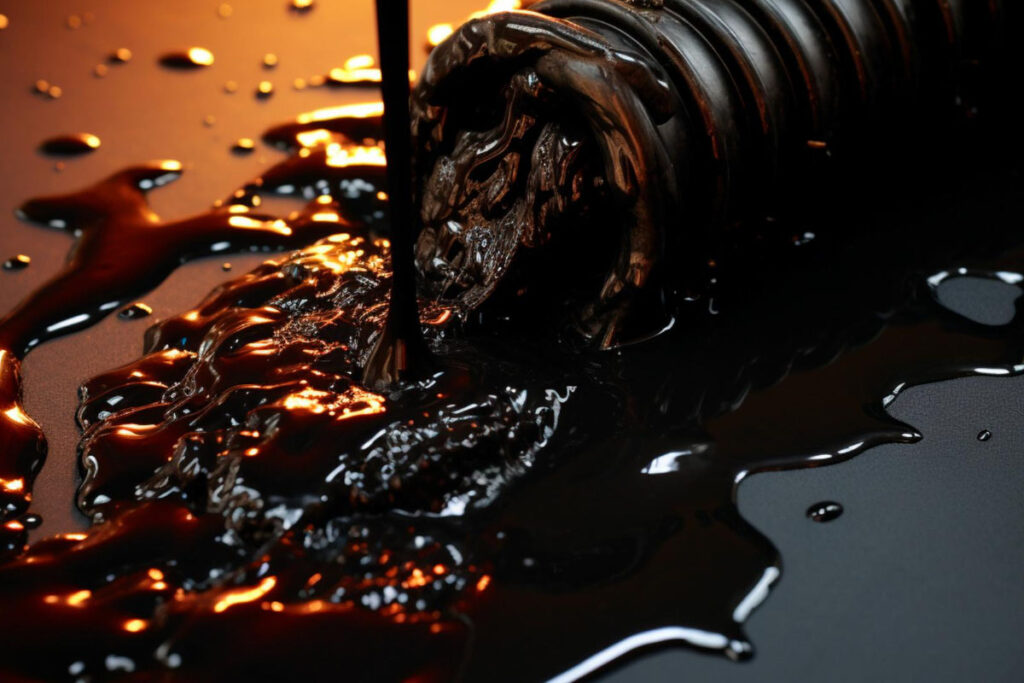
Understanding the Importance of Diesel Exhaust Fluid Diesel exhaust fluid (DEF) is a critical component in reducing harmful emissions from diesel engines. It is used in Selective Catalytic Reduction (SCR) systems to convert nitrogen oxides (NOx) into harmless water and nitrogen, helping vehicles meet environmental regulations. Making your own DEF can be a cost-effective solution, but it requires precision and high-quality equipment, such as a reliable diesel exhaust fluid making machine. Ensuring the correct formulation is essential to maintain engine efficiency and prevent damage to the SCR system. Key Ingredients Required to Make Your Own DEF The primary components of diesel exhaust fluid are high-purity urea and deionized water. The urea must be technical-grade (32.5% concentration) and free from impurities. Using impure water or lower-grade urea can result in DEF contamination, leading to engine malfunctions. A high-quality diesel exhaust fluid making machine ensures accurate blending of these ingredients to maintain compliance with ISO 22241 standards. Investing in proper raw materials and equipment helps ensure long-term reliability and performance. The Role of a Diesel Exhaust Fluid Making Machine Using a diesel exhaust fluid making machine is the most efficient way to produce DEF at scale. These machines automate the mixing process, ensuring the correct proportion of urea to deionized water, eliminating errors that could affect DEF quality. A high-quality diesel exhaust fluid making machine also includes filtration systems to remove impurities, preventing contamination. Automation improves accuracy, reduces human errors, and ensures consistent product quality, making it the best option for those looking to produce DEF reliably. Step-by-Step Guide to Making Your Own DEF Producing your own diesel exhaust fluid involves a precise process. Here’s how to do it properly: Source high-purity urea and deionized water. Use a calibrated diesel exhaust fluid making machine to mix the two ingredients in the correct 32.5% urea-to-water ratio. Ensure proper filtration to remove any potential contaminants. Store the DEF in a temperature-controlled, contamination-free environment. Following these steps ensures high-quality DEF that meets industry standards, protecting diesel engines from potential issues. Proper Storage and Handling of Homemade DEF Once you have successfully produced diesel exhaust fluid, proper storage and handling are crucial to maintain its quality. DEF is sensitive to temperature changes and contaminants, requiring specific storage conditions. Avoid exposing DEF to direct sunlight and extreme temperatures. Using sealed, non-metallic containers prevents contamination. A well-maintained diesel exhaust fluid making machine also helps ensure DEF remains pure throughout production and storage. Common Mistakes to Avoid When Making DEF There are several common mistakes that can compromise the quality of diesel exhaust fluid. One of the most significant errors is using tap water instead of deionized water, which introduces impurities and damages SCR systems. Another mistake is failing to use a proper diesel exhaust fluid making machine, leading to inaccurate mixing and inconsistent DEF quality. Ensuring correct storage conditions and conducting regular quality tests will help prevent these common pitfalls. Cost Savings and Benefits of Making Your Own DEF Producing your own diesel exhaust fluid can be a cost-effective alternative to purchasing pre-packaged DEF. By investing in a reliable diesel exhaust fluid making machine, businesses can significantly lower production costs while ensuring a steady supply. Long-term savings come from reducing reliance on external suppliers, avoiding price fluctuations, and maintaining control over DEF quality. For large-scale operations, in-house production leads to better efficiency, improved profitability, and environmental benefits. Conclusion Making your own diesel exhaust fluid is a viable option for businesses looking to save costs and maintain control over product quality. By using a high-quality diesel exhaust fluid making machine, following the correct formulation, and ensuring proper storage, you can produce DEF that meets industry standards. Investing in the right equipment and raw materials ensures long-term success and compliance with environmental regulations. Frequently Asked Questions Can I make my own diesel exhaust fluid at home? While possible, making diesel exhaust fluid requires precision, high-purity urea, and a diesel exhaust fluid making machine to ensure quality and compliance with industry standards. What is the correct ratio of urea to water in DEF? The standard DEF formula consists of 32.5% high-purity urea and 67.5% deionized water. Why is deionized water necessary for making DEF? Deionized water ensures that diesel exhaust fluid remains free from minerals and contaminants that could damage SCR systems. How long does DEF last after production? When stored properly, diesel exhaust fluid has a shelf life of about one year. What equipment do I need to make my own DEF? A diesel exhaust fluid making machine, high-purity urea, deionized water, and proper storage containers are essential. Can I use tap water to make DEF? No, tap water contains impurities that can degrade the quality of diesel exhaust fluid and damage the engine’s SCR system. How do I store DEF properly? Store diesel exhaust fluid in a temperature-controlled, sealed, non-metallic container away from direct sunlight. What happens if DEF is contaminated? Contaminated diesel exhaust fluid can cause engine malfunctions, increased emissions, and SCR system failures. Is making my own DEF cheaper than buying it? Yes, investing in a diesel exhaust fluid making machine allows businesses to reduce costs and ensure a consistent supply. What are the risks of making DEF incorrectly? Improperly mixed diesel exhaust fluid can lead to SCR system failure, regulatory violations, and costly engine repairs.
Step-by-Step Guide to Make Your Own DEF Fluid Safely

Understanding the Importance of DEF and Why You Should Make Your Own DEF Fluid Diesel Exhaust Fluid (DEF) is an essential component used in Selective Catalytic Reduction (SCR) systems to reduce harmful emissions from diesel engines. The proper use of DEF helps lower nitrogen oxide (NOx) emissions, ensuring compliance with environmental regulations. If you want to make your own DEF fluid, you must follow strict guidelines to maintain the required 32.5% urea and 67.5% deionized water ratio. Incorrectly produced DEF can damage engines and fail to meet regulatory standards, making high-quality production essential. Essential Ingredients to Make Your Own DEF Fluid The main ingredients required to make your own DEF fluid are high-purity urea and deionized water. Using impure urea or regular tap water can introduce contaminants, leading to poor DEF performance and potential engine damage. It is critical to source technical-grade urea with at least 99.6% purity. Additionally, deionized water must be free from minerals and impurities. Properly sourcing these materials ensures that your homemade DEF remains effective and safe for diesel engines. The Equipment Needed to Make Your Own DEF Fluid To successfully make your own DEF fluid, you need specialized equipment. The most important piece of equipment is a DEF production system that ensures precise blending of urea and water. Filtration systems are also necessary to remove any unwanted particles. Proper storage tanks and sealed, non-metallic containers will help maintain DEF quality after production. Using the right equipment minimizes the risk of contamination and ensures a reliable DEF supply. Step-by-Step Process to Make Your Own DEF Fluid Following a precise process is essential to make your own DEF fluid correctly. Here are the steps to ensure high-quality production: Measure 32.5% technical-grade urea and 67.5% deionized water. Slowly dissolve the urea in the water while stirring constantly. Use a filtration system to remove any particles or contaminants. Store the DEF in sealed, non-metallic containers to prevent contamination. Keep the stored DEF in a controlled environment, avoiding extreme temperatures and direct sunlight. Following these steps ensures that your homemade DEF meets industry standards and functions properly in diesel engines. Proper Storage and Handling After You Make Your Own DEF Fluid After successfully producing DEF, proper storage is essential to maintain its quality. Exposure to heat, light, and contaminants can degrade DEF, making it ineffective for SCR systems. When you make your own DEF fluid, always store it in sealed, UV-resistant plastic containers. Keep the storage area between 12°C and 25°C (55°F to 77°F) to prevent degradation. Regularly inspect stored DEF for contamination or crystallization. Common Mistakes to Avoid When You Make Your Own DEF Fluid Many people attempt to make your own DEF fluid without following proper guidelines, leading to poor-quality DEF. One of the most common mistakes is using tap water instead of deionized water, which introduces harmful minerals. Another mistake is improper urea-to-water mixing ratios. Overly diluted or concentrated DEF can lead to system failures. Ensuring that all materials and processes meet ISO 22241 standards helps maintain DEF quality and prevents costly engine damage. Advantages of Choosing to Make Your Own DEF Fluid Choosing to make your own DEF fluid offers several benefits, including cost savings and a reliable DEF supply. Commercial DEF can be expensive, especially for large fleets, making in-house production a cost-effective solution. Additionally, making your own DEF ensures consistent quality and prevents supply chain disruptions. By controlling the production process, businesses can maintain compliance with regulations while reducing operational costs. Conclusion Deciding to make your own DEF fluid can be a smart choice if done correctly. By sourcing high-purity materials, following precise mixing procedures, and storing DEF properly, you can produce high-quality DEF that meets industry standards. Proper production reduces costs, ensures engine protection, and helps meet environmental regulations. Following these best practices will ensure that your homemade DEF is safe, effective, and reliable. Frequently Asked Questions Can I make my own DEF fluid at home? Yes, but you must follow strict guidelines and use high-purity urea and deionized water to ensure proper DEF quality. What is the correct ratio to make your own DEF fluid? The correct ratio is 32.5% high-purity urea and 67.5% deionized water. Why do I need deionized water to make DEF? Deionized water ensures that your DEF remains free from minerals and contaminants that could damage diesel engine SCR systems. Can I use tap water when I make my own DEF fluid? No, tap water contains impurities that can cause DEF to degrade and lead to SCR system malfunctions. How long does homemade DEF last? When stored properly in a sealed, non-metallic container, DEF has a shelf life of about one year. What happens if my DEF is contaminated? Contaminated DEF can cause serious damage to the SCR system, leading to increased emissions and costly engine repairs. How should I store DEF after I make it? Store DEF in a cool, dry place away from direct sunlight, and use sealed, UV-resistant plastic containers to prevent contamination. Can making my own DEF save money? Yes, producing DEF in-house can significantly reduce costs, especially for businesses that require large quantities. Is homemade DEF as good as commercially produced DEF? If made using high-quality ingredients and the correct process, homemade DEF can be just as effective as commercial DEF. What are the risks of making DEF incorrectly? If the DEF ratio is incorrect or if contamination occurs, the SCR system can fail, leading to high repair costs and non-compliance with emissions regulations.
Construction of Diesel Exhaust Fluid Production Plant
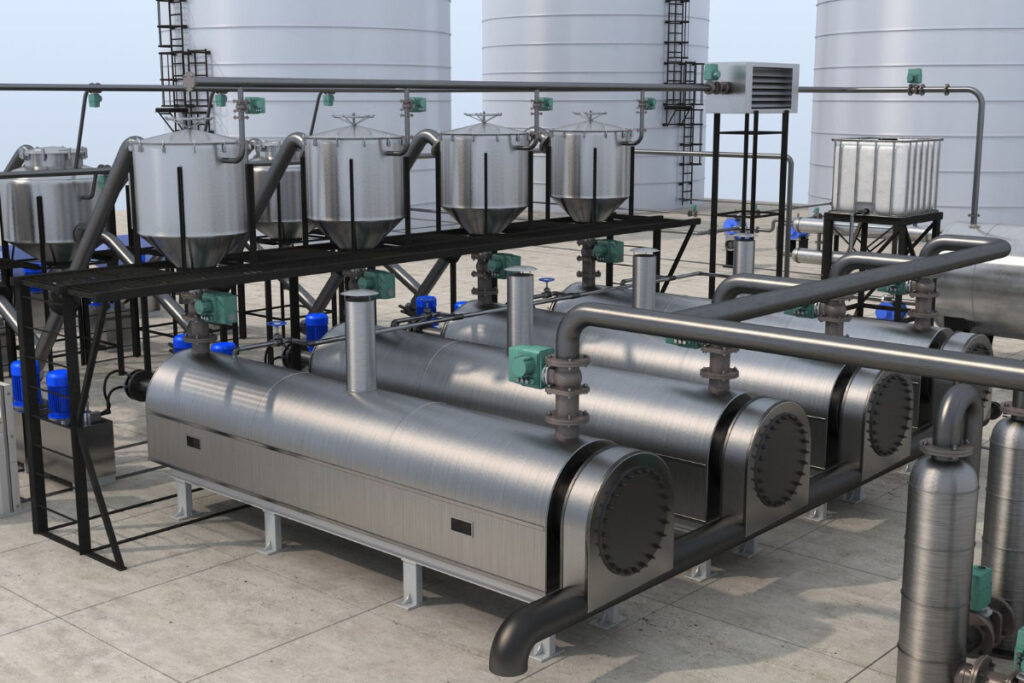
Understanding the Importance of a Diesel Exhaust Fluid Manufacturing Plant Building a diesel exhaust fluid manufacturing plant is a strategic investment for businesses looking to meet the rising demand for DEF. As emission regulations become more stringent, the need for high-quality DEF continues to grow, making in-house production a cost-effective and reliable solution. Producing DEF in-house ensures quality control, regulatory compliance, and a steady supply of DEF for transportation and industrial applications. Utilizing a high-performance diesel exhaust fluid making machine allows businesses to optimize production and maintain consistent product quality, ensuring adherence to ISO 22241 standards. Selecting the Right Location for Your Diesel Exhaust Fluid Manufacturing Plant The location of a diesel exhaust fluid manufacturing plant plays a crucial role in its operational success. It should be strategically positioned near raw material suppliers, major transportation routes, and key distribution networks to minimize logistical costs. Additionally, zoning regulations, environmental permits, and access to utilities such as water and electricity must be considered. A well-placed diesel exhaust fluid manufacturing plant helps streamline production, reduce transportation expenses, and enhance overall efficiency. Choosing the Best Diesel Exhaust Fluid Making Machine At the heart of any diesel exhaust fluid manufacturing plant is a high-quality diesel exhaust fluid making machine. This machine is responsible for accurately mixing deionized water and high-purity urea to produce DEF that meets industry standards. When selecting a diesel exhaust fluid making machine, businesses should consider factors such as automation, production capacity, filtration efficiency, and ease of maintenance. Advanced machines with automated controls improve accuracy and reduce human errors, ensuring a more efficient and cost-effective production process. Establishing a Streamlined Production Process Efficiency is key when setting up a diesel exhaust fluid manufacturing plant. The production process should be designed to minimize waste and maximize output. This involves setting up storage tanks for raw materials, an advanced mixing system, and automated quality control measures. By integrating a modern diesel exhaust fluid making machine into the workflow, businesses can improve precision and maintain product consistency. Implementing a structured production process also helps reduce downtime and increases overall efficiency. Ensuring Compliance with Industry Regulations Compliance with industry standards is essential for any diesel exhaust fluid manufacturing plant. DEF production must meet strict ISO 22241 guidelines to guarantee purity and effectiveness. Failure to comply with these regulations can result in fines and product recalls. To ensure compliance, businesses should regularly test their DEF quality, maintain proper storage conditions, and use certified raw materials. A high-quality diesel exhaust fluid making machine helps achieve consistent results and prevents contamination, ensuring regulatory adherence. Managing Costs and Maximizing Profitability Building a diesel exhaust fluid manufacturing plant requires a significant investment, but effective cost management strategies can maximize profitability. One way to reduce costs is by choosing an energy-efficient diesel exhaust fluid making machine that minimizes electricity and water consumption. Bulk purchasing raw materials, optimizing production workflows, and implementing preventive maintenance strategies also help lower operational expenses. By carefully managing costs, businesses can increase their return on investment and ensure long-term profitability. Expanding Market Reach and Business Growth Once a diesel exhaust fluid manufacturing plant is fully operational, businesses should focus on expanding their market reach. DEF is widely used in transportation, agriculture, and industrial sectors, providing numerous opportunities for growth. By investing in additional diesel exhaust fluid making machine units and forming partnerships with distributors, companies can scale up production and increase their market share. Developing a strong brand presence and offering competitive pricing further enhances business growth potential. Conclusion Building a diesel exhaust fluid manufacturing plant requires careful planning, strategic investment, and the right equipment. A high-quality diesel exhaust fluid making machine ensures efficient production, regulatory compliance, and consistent DEF quality. By managing costs effectively and expanding market reach, businesses can establish a profitable and sustainable DEF production operation. Frequently Asked Questions What is a diesel exhaust fluid manufacturing plant? A diesel exhaust fluid manufacturing plant is a facility designed to produce DEF, a solution used to reduce emissions in diesel engines. Why is investing in a diesel exhaust fluid manufacturing plant beneficial? Owning a diesel exhaust fluid manufacturing plant ensures a stable DEF supply, reduces costs, and provides greater control over product quality. What equipment is needed to set up a diesel exhaust fluid manufacturing plant? Essential equipment includes a diesel exhaust fluid making machine, raw material storage tanks, mixing systems, filtration units, and quality control tools. How do I choose the right diesel exhaust fluid making machine? Consider factors such as production capacity, automation features, energy efficiency, and compliance with industry standards when selecting a diesel exhaust fluid making machine. What are the regulatory requirements for a diesel exhaust fluid manufacturing plant? A diesel exhaust fluid manufacturing plant must comply with ISO 22241 standards and environmental regulations to ensure product purity and effectiveness. How can I reduce operational costs in my diesel exhaust fluid manufacturing plant? Invest in an energy-efficient diesel exhaust fluid making machine, buy raw materials in bulk, automate production, and implement preventive maintenance strategies. How long does it take to set up a diesel exhaust fluid manufacturing plant? The setup time depends on factors such as plant size, equipment installation, regulatory approvals, and workforce training. Can I expand my diesel exhaust fluid manufacturing plant in the future? Yes, businesses can expand their diesel exhaust fluid manufacturing plant by increasing production capacity, investing in additional diesel exhaust fluid making machine units, and entering new markets. What are the main challenges in building a diesel exhaust fluid manufacturing plant? Challenges include meeting regulatory requirements, securing high-quality raw materials, managing costs, and ensuring consistent DEF production quality. What is the expected return on investment for a diesel exhaust fluid manufacturing plant? The return on investment varies based on production scale, market demand, and operational efficiency, but most businesses achieve profitability within a few years.
Key Benefits of a Diesel Exhaust Fluid Plant Investment
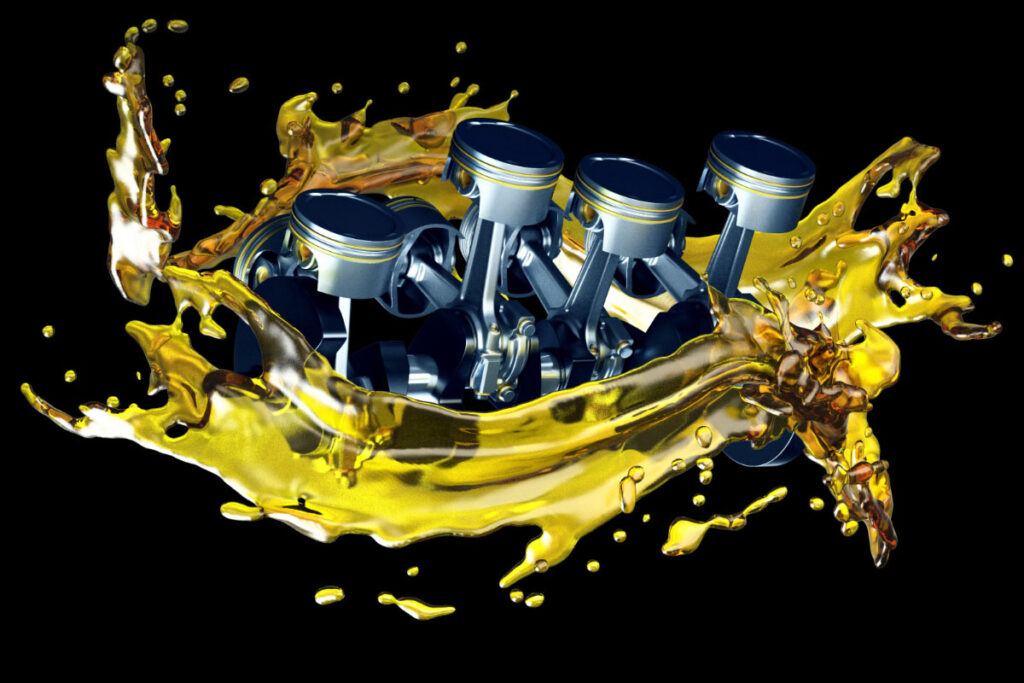
Ensuring a Steady Supply of High-Quality DEF Investing in a diesel exhaust fluid plant allows businesses to maintain a consistent and high-quality supply of DEF. Diesel Exhaust Fluid (DEF) is essential for reducing harmful emissions from diesel engines, and its demand is increasing due to stricter environmental regulations. By producing DEF in-house, companies eliminate dependency on third-party suppliers and potential supply chain disruptions. Using a high-quality diesel exhaust fluid making machine ensures that the production process meets industry standards such as ISO 22241. Consistency in DEF quality prevents engine failures and enhances the longevity of Selective Catalytic Reduction (SCR) systems. Cost Savings and Increased Profit Margins One of the main benefits of establishing a diesel exhaust fluid plant is the significant cost savings associated with in-house production. Purchasing DEF from suppliers can be expensive, especially when transportation and storage costs are factored in. By investing in a reliable diesel exhaust fluid making machine, businesses can produce DEF at a lower cost per gallon compared to purchasing it externally. This cost efficiency translates to higher profit margins, making the investment highly attractive for fleet operators, fuel distributors, and industrial businesses. Compliance with Environmental Regulations Governments worldwide are tightening regulations on diesel engine emissions, making DEF a critical component for compliance. A well-established diesel exhaust fluid plant ensures that businesses can meet these requirements without relying on external DEF suppliers. Using a high-quality diesel exhaust fluid making machine guarantees that the DEF produced adheres to strict purity and composition standards. Compliance with emission laws not only avoids legal penalties but also enhances a company’s reputation as an environmentally responsible organization. Opportunities for Business Expansion Owning a diesel exhaust fluid plant opens new business opportunities. As the demand for DEF continues to grow, businesses can scale up production and supply to other companies, transportation fleets, and fuel stations. By using a high-capacity diesel exhaust fluid making machine, companies can expand their market reach and establish long-term supply contracts. This diversification creates a steady revenue stream and strengthens the company’s position in the industry. Improved Supply Chain Control and Reliability Dependence on third-party DEF suppliers comes with risks, including price fluctuations, delivery delays, and quality inconsistencies. A self-sufficient diesel exhaust fluid plant eliminates these uncertainties, ensuring a reliable and controlled supply chain. By utilizing a well-maintained diesel exhaust fluid making machine, businesses can regulate production schedules based on demand, reduce lead times, and minimize operational disruptions. This level of control results in greater efficiency and overall cost-effectiveness. Long-Term Sustainability and Energy Efficiency Building a diesel exhaust fluid plant aligns with sustainability goals by reducing carbon footprints and promoting environmentally friendly operations. In-house DEF production reduces the need for long-distance transportation, lowering greenhouse gas emissions. Modern diesel exhaust fluid making machine models are designed with energy-efficient features that optimize resource consumption. Investing in energy-saving equipment leads to long-term operational savings while maintaining high DEF production standards. Enhanced Brand Reputation and Market Competitiveness Companies that invest in a diesel exhaust fluid plant demonstrate a commitment to quality, compliance, and environmental responsibility. This investment strengthens brand credibility and helps attract new customers who prioritize sustainability and regulatory adherence. By using an advanced diesel exhaust fluid making machine, businesses can differentiate themselves from competitors by offering premium-quality DEF. This advantage builds customer trust and fosters long-term business relationships. Conclusion Investing in a diesel exhaust fluid plant provides numerous benefits, including cost savings, supply chain control, compliance with regulations, and business expansion opportunities. By incorporating a high-quality diesel exhaust fluid making machine, companies can ensure efficient production while maintaining environmental sustainability. With increasing demand for DEF, this investment positions businesses for long-term success and profitability. Frequently Asked Questions What is a diesel exhaust fluid plant? A diesel exhaust fluid plant is a facility that produces DEF, a solution used to reduce emissions in diesel engines. Why should I invest in a diesel exhaust fluid plant? Investing in a diesel exhaust fluid plant reduces costs, ensures compliance with regulations, and provides a stable DEF supply. What equipment is needed for a diesel exhaust fluid plant? Essential equipment includes a diesel exhaust fluid making machine, storage tanks, filtration systems, and quality testing tools. How does a diesel exhaust fluid making machine work? A diesel exhaust fluid making machine blends deionized water with urea to produce DEF that meets industry standards. Is producing DEF in-house more cost-effective than buying it? Yes, in-house production using a diesel exhaust fluid making machine reduces costs compared to purchasing DEF from suppliers. What are the regulatory requirements for DEF production? A diesel exhaust fluid plant must comply with ISO 22241 standards and local environmental regulations. Can I scale up production in my diesel exhaust fluid plant? Yes, by investing in additional diesel exhaust fluid making machine units and optimizing production capacity. How do I ensure high-quality DEF production? Using a certified diesel exhaust fluid making machine and maintaining strict quality control measures ensures high DEF purity. How long does it take to set up a diesel exhaust fluid plant? The setup time varies based on plant size, equipment procurement, and regulatory approvals. What are the long-term benefits of a diesel exhaust fluid plant investment? Long-term benefits include cost savings, supply chain reliability, regulatory compliance, and business growth opportunities.
How to Set Up a Diesel Exhaust Fluid Plant Efficiently

Understanding the Importance of a Diesel Exhaust Fluid Plant Setting up a diesel exhaust fluid plant is a strategic move for businesses involved in the automotive and industrial sectors. Diesel Exhaust Fluid (DEF) is a vital component in reducing emissions from diesel engines, helping companies comply with environmental regulations while maintaining engine efficiency. A properly designed diesel exhaust fluid plant ensures a steady supply of high-quality DEF, reducing dependency on external suppliers. By producing DEF in-house, businesses can lower costs, improve operational control, and ensure product consistency. With the right equipment, such as a diesel exhaust fluid making machine, companies can optimize production and maximize profitability. Choosing the Right Location for Your Diesel Exhaust Fluid Plant The location of a diesel exhaust fluid plant plays a crucial role in its success. Proximity to raw material suppliers, transportation hubs, and target markets significantly impacts logistics efficiency. Choosing a site with easy access to high-purity urea and deionized water will streamline production and reduce costs. Additionally, businesses should consider zoning laws, environmental regulations, and utility availability when selecting a location. A well-placed diesel exhaust fluid plant minimizes operational challenges and enhances efficiency. Investing in a strategic site ensures smooth supply chain operations and supports long-term business growth. Selecting the Best Diesel Exhaust Fluid Making Machine The core of any diesel exhaust fluid plant is a reliable diesel exhaust fluid making machine. This machine is responsible for accurately mixing urea and deionized water to produce high-quality DEF. Choosing the right machine is essential for maintaining production efficiency and meeting ISO 22241 standards. Key factors to consider when selecting a diesel exhaust fluid making machine include automation levels, production capacity, filtration systems, and compliance with industry regulations. An advanced machine with automated controls ensures precise mixing, reducing the risk of contamination and inconsistencies in DEF quality. Setting Up the Production Process for Maximum Efficiency Once the diesel exhaust fluid plant is established, designing an efficient production workflow is essential. The process begins with raw material storage, followed by mixing, filtration, and quality testing. Each stage must be optimized to minimize waste and maximize output. Integrating automation into the production process using a high-quality diesel exhaust fluid making machine improves efficiency and reduces human errors. Automated monitoring systems track production parameters in real time, ensuring that DEF meets the required specifications. Proper workflow planning also enhances energy efficiency and reduces operational costs. Ensuring Compliance with Environmental and Industry Regulations Regulatory compliance is a key consideration when setting up a diesel exhaust fluid plant. DEF production must adhere to strict industry standards, such as ISO 22241, which dictate quality requirements and storage guidelines. Failure to comply with these regulations can result in penalties and damage to business credibility. Businesses should invest in quality control measures and conduct regular testing to verify DEF purity. Using a certified diesel exhaust fluid making machine ensures that the final product meets regulatory standards. Implementing proper storage and handling protocols further guarantees compliance and long-term product stability. Managing Costs and Optimizing Production Efficiency Cost management is essential for the profitability of a diesel exhaust fluid plant. Reducing expenses without compromising product quality requires careful planning. One of the most effective ways to cut costs is by selecting an energy-efficient diesel exhaust fluid making machine, which minimizes electricity and water consumption. Bulk purchasing of raw materials, automation of key processes, and regular maintenance of equipment help optimize operational expenses. Conducting periodic cost analyses allows businesses to identify inefficiencies and implement cost-saving measures. A well-managed plant enhances profitability while maintaining high production standards. Conclusion Establishing a successful diesel exhaust fluid plant requires careful planning, strategic location selection, and investment in high-quality equipment like a diesel exhaust fluid making machine. Ensuring regulatory compliance, optimizing production processes, and managing costs effectively contribute to long-term business success. With the right approach, companies can create a sustainable and profitable DEF production operation. Frequently Asked Questions What is a diesel exhaust fluid plant? A diesel exhaust fluid plant is a facility that produces DEF, a solution used to reduce emissions in diesel engines. Why is it important to set up a diesel exhaust fluid plant? Having a diesel exhaust fluid plant ensures a consistent DEF supply, lowers costs, and helps businesses comply with emission regulations. What equipment is needed for a diesel exhaust fluid plant? The primary equipment includes a diesel exhaust fluid making machine, storage tanks, filtration systems, and quality testing tools. How do I choose the right diesel exhaust fluid making machine? Consider factors such as automation level, production capacity, energy efficiency, and compliance with industry standards. What are the regulatory requirements for a diesel exhaust fluid plant? A diesel exhaust fluid plant must comply with ISO 22241 standards and local environmental regulations. How can I reduce operational costs in my diesel exhaust fluid plant? Optimize energy efficiency, automate production processes, buy raw materials in bulk, and conduct regular maintenance on equipment. What are the key challenges in setting up a diesel exhaust fluid plant? Challenges include regulatory compliance, securing a reliable raw material supply, managing production costs, and maintaining product quality. Can I expand my diesel exhaust fluid plant in the future? Yes, by investing in additional diesel exhaust fluid making machine units and scaling up production capacity. How do I market my diesel exhaust fluid plant? Develop partnerships with fleet operators, use digital marketing, and highlight regulatory compliance and product quality. What is the expected return on investment for a diesel exhaust fluid plant? The return on investment depends on production scale, market demand, and operational efficiency, but most businesses see profitability within a few years.
How to Choose a Diesel Exhaust Fluid Making Machine

Understanding the Purpose of a Diesel Exhaust Fluid Making Machine A diesel exhaust fluid making machine is an essential piece of equipment for businesses that need a reliable supply of DEF. Diesel Exhaust Fluid (DEF) is a crucial solution used in Selective Catalytic Reduction (SCR) systems to reduce nitrogen oxide emissions in diesel engines. With increasing environmental regulations, having a high-quality DEF supply ensures compliance and engine efficiency. Choosing the right diesel exhaust fluid making machine depends on factors like production capacity, automation levels, and compliance with ISO 22241 standards. Investing in the right machine not only ensures a steady supply of DEF but also helps businesses cut costs and maintain sustainability goals. Understanding the function and role of this machine is the first step in making an informed purchasing decision. Key Features to Look for in a Diesel Exhaust Fluid Making Machine When selecting a diesel exhaust fluid making machine, it is crucial to focus on specific features that affect performance and quality. One of the most important factors is the precision of the mixing system. The machine should accurately blend deionized water and high-purity urea to create a solution that meets industry standards. Another important feature is an advanced filtration system. Since DEF must be free of impurities, high-quality filters help prevent contamination. Automated control systems are also beneficial, as they enhance accuracy and reduce human errors. Additionally, a user-friendly interface and easy maintenance features contribute to the long-term efficiency of the diesel exhaust fluid making machine. Determining the Right Capacity for Your Needs Before purchasing a diesel exhaust fluid making machine, businesses must assess their DEF consumption. The production capacity of the machine should align with the demand to avoid overproduction or shortages. Machines come in various sizes, from small-scale units for local distribution to large industrial models for high-volume production. For companies with a large fleet of diesel vehicles, a high-capacity diesel exhaust fluid making machine is ideal. On the other hand, smaller businesses may opt for compact machines that require less space and energy consumption. Evaluating daily or monthly DEF usage will help determine the most suitable machine size. Considering Automation and User-Friendly Controls Automation plays a significant role in the efficiency of a diesel exhaust fluid making machine. Fully automated machines offer greater precision, consistency, and minimal human intervention. These machines use sensors and real-time monitoring systems to detect issues and adjust production parameters automatically. Machines with digital controls and touchscreen interfaces make operation simpler for users. Features like automatic shut-off, real-time production tracking, and remote monitoring add to the convenience of running a diesel exhaust fluid making machine. Investing in automation reduces errors, saves labor costs, and improves overall productivity. Ensuring Compliance with Industry Standards One of the most crucial aspects of choosing a diesel exhaust fluid making machine is ensuring that it meets industry regulations. DEF must comply with ISO 22241 standards, which define the required purity levels and quality specifications. Machines that do not adhere to these guidelines may produce DEF that damages engines and violates emissions regulations. When purchasing a diesel exhaust fluid making machine, check whether it has the necessary certifications. Reliable manufacturers provide compliance documents and quality assurance reports. Ensuring that the machine meets legal and industry requirements protects businesses from potential liabilities and engine performance issues. Evaluating Energy Efficiency and Operational Costs Running a diesel exhaust fluid making machine requires energy and operational resources. Energy-efficient models help reduce electricity consumption, lowering production costs over time. Machines with optimized energy use also contribute to environmental sustainability by minimizing carbon footprints. Operational costs include maintenance, replacement parts, and labor. A high-quality diesel exhaust fluid making machine with durable components reduces frequent maintenance needs. Comparing different models based on energy consumption and overall cost-effectiveness helps in selecting the most economical option for long-term use Conclusion Choosing the right diesel exhaust fluid making machine requires careful evaluation of features, capacity, automation, and compliance standards. A well-chosen machine ensures consistent DEF production, reduces operational costs, and helps businesses comply with emission regulations. By considering energy efficiency and selecting a reliable manufacturer, businesses can maximize the value of their investment while maintaining high-quality DEF production. Frequently Asked Questions What is a diesel exhaust fluid making machine? A diesel exhaust fluid making machine is equipment used to produce DEF by blending deionized water and high-purity urea in precise ratios. Why is it important to choose the right diesel exhaust fluid making machine? Selecting the right diesel exhaust fluid making machine ensures compliance with environmental regulations, reduces production costs, and maintains DEF quality. What factors should I consider when buying a diesel exhaust fluid making machine? Key factors include production capacity, automation features, filtration systems, energy efficiency, and manufacturer reputation. How much does a diesel exhaust fluid making machine cost? The cost varies based on machine capacity, automation level, and brand, ranging from small-scale models to large industrial units. Does a diesel exhaust fluid making machine require a lot of maintenance? Regular maintenance is required, including filter changes, system inspections, and cleaning to ensure DEF purity and machine longevity. Can I use a diesel exhaust fluid making machine for large-scale production? Yes, industrial-grade diesel exhaust fluid making machine models are available for high-volume DEF production. How do I ensure my DEF meets industry standards? Choose a diesel exhaust fluid making machine that complies with ISO 22241 standards and follows proper production protocols. Is automation necessary in a diesel exhaust fluid making machine? Automation improves efficiency, accuracy, and ease of operation, making it a valuable feature in a diesel exhaust fluid making machine. Where can I buy a high-quality diesel exhaust fluid making machine? Reliable manufacturers and industrial suppliers offer certified diesel exhaust fluid making machine models with after-sales support. What are the long-term benefits of investing in a diesel exhaust fluid making machine? Owning a diesel exhaust fluid making machine reduces costs, ensures a consistent DEF supply, and improves environmental compliance.
Efficient Diesel Exhaust Fluid Making Machine Guide
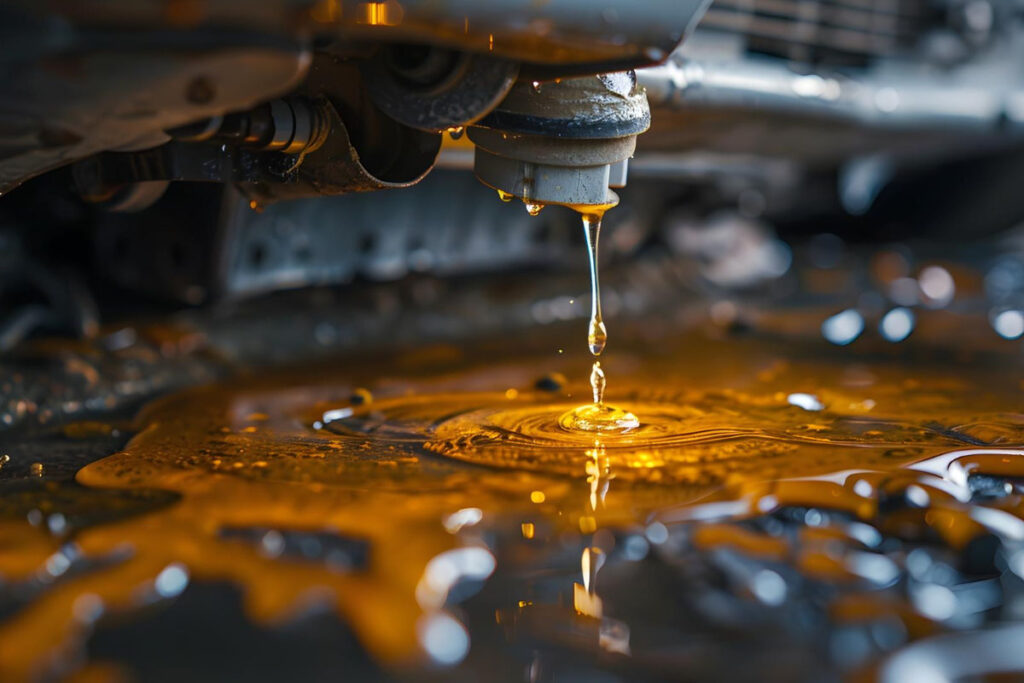
Understanding Diesel Exhaust Fluid and Its Importance Diesel exhaust fluid making machine is essential for producing high-quality DEF, a critical component in reducing nitrogen oxide emissions from diesel engines. DEF is composed of purified water and urea, which undergo a precise mixing process to ensure compliance with environmental regulations. Without a properly manufactured DEF solution, diesel engines may fail to meet emission standards, leading to legal penalties and increased pollution. How a Diesel Exhaust Fluid Making Machine Works A diesel exhaust fluid making machine operates by combining high-purity urea with deionized water under controlled conditions. This process requires advanced filtration, mixing, and temperature regulation to produce DEF that meets ISO 22241 standards. The machine ensures precise dosing and blending to prevent impurities from compromising the final product. The key components of a diesel exhaust fluid making machine include filtration systems, storage tanks, mixing chambers, and dispensing units. These components work together to maintain DEF purity and consistency. Automated machines offer real-time monitoring, ensuring optimal production efficiency and reducing human errors in the process. Key Features to Look for in a Diesel Exhaust Fluid Making Machine When selecting a diesel exhaust fluid making machine, businesses should consider several critical factors. First, the machine should have a high-precision mixing system to ensure the correct ratio of urea to water. Second, the filtration system must remove impurities to prevent contamination and maintain DEF quality. Additionally, an efficient diesel exhaust fluid making machine should include automated controls and monitoring features. These systems help detect inconsistencies in the production process, allowing for immediate adjustments. Energy efficiency is another important factor, as an optimized machine reduces operational costs while maintaining high production output. Benefits of Using a Diesel Exhaust Fluid Making Machine Investing in a diesel exhaust fluid making machine offers several advantages. Firstly, it ensures a consistent and high-quality DEF supply, reducing dependence on external suppliers. This can significantly lower costs for fleet operators and industrial users. Secondly, an in-house diesel exhaust fluid making machine improves production efficiency, allowing businesses to produce DEF on demand. This reduces storage requirements and minimizes waste. Furthermore, producing DEF locally enhances compliance with environmental regulations by ensuring the solution meets strict industry standards. Maintenance Tips for a Diesel Exhaust Fluid Making Machine Proper maintenance is essential to keep a diesel exhaust fluid making machine running efficiently. Regularly cleaning the filtration system prevents blockages and ensures the purity of the produced DEF. Checking the mixing ratios and adjusting machine settings as needed will help maintain consistent quality. Additionally, operators should routinely inspect storage tanks and dispensing units to prevent contamination. Any leaks or faults in the system should be addressed immediately to avoid costly downtime. By following a proactive maintenance schedule, businesses can extend the lifespan of their diesel exhaust fluid making machine and optimize its performance. Common Mistakes to Avoid When Using a Diesel Exhaust Fluid Making Machine Many users make critical mistakes when operating a diesel exhaust fluid making machine. One common error is using impure water, which can introduce contaminants into the DEF solution and damage engine components. To prevent this, always use deionized or distilled water as specified in DEF production guidelines.Another mistake is neglecting regular maintenance. Skipping filter replacements or ignoring warning signs from the machine can lead to inefficient production and compromised DEF quality. Conclusion A diesel exhaust fluid making machine is a valuable investment for businesses looking to produce high-quality DEF while maintaining compliance with emission regulations. By understanding how these machines work, their benefits, and proper maintenance practices, companies can ensure a steady supply of DEF without relying on external suppliers. Choosing the right machine tailored to specific operational needs will enhance efficiency, reduce costs, and improve environmental sustainability. Frequently Asked Questions What is a diesel exhaust fluid making machine? A diesel exhaust fluid making machine is a specialized system designed to mix high-purity urea and deionized water to produce DEF that meets industry standards. Why is it important to use a diesel exhaust fluid making machine? Using a diesel exhaust fluid making machine ensures consistent DEF quality, reduces dependency on suppliers, and helps businesses comply with emission regulations. What factors should be considered when buying a diesel exhaust fluid making machine? Key factors include production capacity, filtration system quality, automation features, and manufacturer support. How often should a diesel exhaust fluid making machine be maintained? Regular maintenance should be performed monthly, including filter checks, storage inspections, and system cleaning. Can I use tap water in a diesel exhaust fluid making machine? No, only deionized or distilled water should be used to prevent contamination and maintain DEF quality. What is the lifespan of a diesel exhaust fluid making machine? With proper maintenance, a high-quality diesel exhaust fluid making machine can last over a decade. Does a diesel exhaust fluid making machine require a large space? It depends on the machine’s capacity. Smaller models require minimal space, while high-volume systems need dedicated facilities. Is it cost-effective to produce DEF with a diesel exhaust fluid making machine? Yes, producing DEF in-house significantly reduces costs compared to purchasing pre-made DEF from suppliers. What are the environmental benefits of using a diesel exhaust fluid making machine? It ensures DEF production meets strict emission standards, reducing nitrogen oxide pollution from diesel engines. Can a diesel exhaust fluid making machine be customized? Yes, many manufacturers offer customizable options to meet specific production requirements.
Key Factors in DEF Production
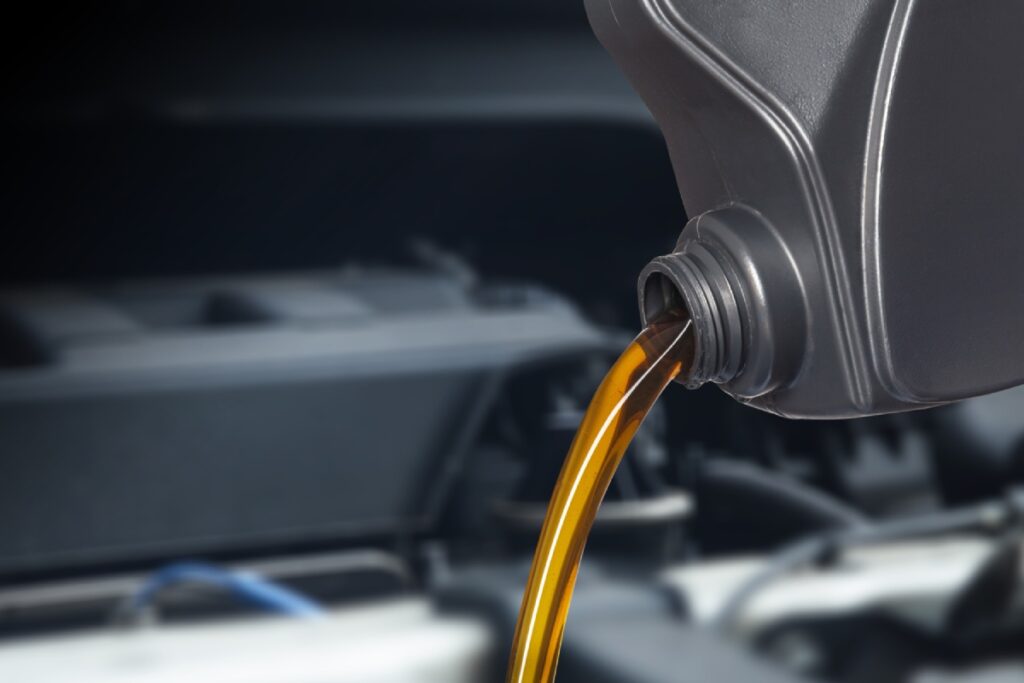
Introduction to DEF Production Efficient DEF Production is essential for meeting industry regulations and ensuring high-quality diesel exhaust fluid. The process involves precise blending, filtration, and quality control measures to produce a product that effectively reduces vehicle emissions. With the increasing adoption of SCR technology in diesel vehicles, the demand for high-purity DEF continues to grow. Raw Materials and Composition The main components of DEF Production are high-purity urea and deionized water. These ingredients must meet stringent purity standards to prevent contamination and ensure optimal performance in selective catalytic reduction (SCR) systems. The 32.5% urea concentration in DEF is critical for efficient nitrogen oxide (NOx) reduction, ensuring compliance with emissions regulations. Mixing and Blending Process Proper mixing techniques are critical to achieving a homogeneous DEF Production batch. Advanced blending systems ensure precise urea dissolution in deionized water, maintaining the correct 32.5% concentration necessary for efficiency. Inconsistent mixing can lead to performance issues, affecting the ability of the SCR system to reduce NOx emissions effectively. Filtration and Purification Filtration plays a vital role in DEF Production, removing impurities and ensuring a high-quality final product. Multi-stage filtration units help eliminate particles that could clog SCR systems, maintaining optimal diesel engine performance. Proper filtration prevents the formation of deposits that can lead to SCR system failure or increased maintenance costs. Quality Control and Compliance Ensuring consistency in DEF Production requires rigorous quality testing and compliance with ISO 22241 standards. Regular laboratory testing verifies concentration, purity, and overall product stability before distribution. Manufacturers must conduct periodic inspections and ensure that the DEF remains free from contaminants such as calcium or magnesium, which could impact the efficiency of the SCR system. Storage and Handling Proper storage solutions are crucial in maintaining the integrity of DEF Production. Temperature-controlled, non-reactive containers help prevent degradation and contamination during storage and transportation. DEF should be stored at temperatures between 12°F (-11°C) and 86°F (30°C) to maintain its quality. Freezing or excessive heat exposure can alter the chemical composition, reducing its effectiveness. Distribution and Logistics After production, efficient distribution of DEF ensures that it reaches end-users without contamination. DEF is transported using dedicated tankers and sealed packaging to maintain purity. Distribution centers must comply with storage regulations, ensuring that DEF remains in optimal condition until use. Common Challenges in DEF Production Despite its straightforward composition, DEF Production faces several challenges. Maintaining high purity levels, ensuring proper storage conditions, and preventing contamination are constant concerns. Additionally, fluctuating raw material costs can impact production efficiency and pricing in the market. Conclusion Successful DEF Production depends on high-quality raw materials, precise blending, and strict quality control. By following industry best practices, manufacturers can produce effective DEF that meets emission standards and enhances engine performance. Investing in efficient storage, filtration, and handling methods ensures that DEF remains pure and effective for end-users. FAQ What is DEF used for? DEF Production results in a fluid used in diesel engines to reduce harmful nitrogen oxide emissions. What are the main ingredients in DEF? DEF is composed of high-purity urea and deionized water. How is DEF quality maintained? Stringent quality control and adherence to ISO 22241 standards ensure the purity of DEF Production. Why is filtration important in DEF production? Filtration removes impurities that could affect SCR system performance. What is the ideal storage condition for DEF? DEF should be stored in temperature-controlled, non-reactive containers. What happens if DEF is contaminated? Contaminated DEF can cause SCR system failures and reduce emission control efficiency. Can DEF be stored for long periods? Yes, but storage conditions must be controlled to maintain its effectiveness. How does DEF help reduce emissions? DEF breaks down nitrogen oxides into harmless nitrogen and water vapor. What regulations apply to DEF production? DEF must comply with ISO 22241 standards to ensure quality and performance. How is DEF transported safely? DEF is transported in sealed, non-reactive containers to prevent contamination.
